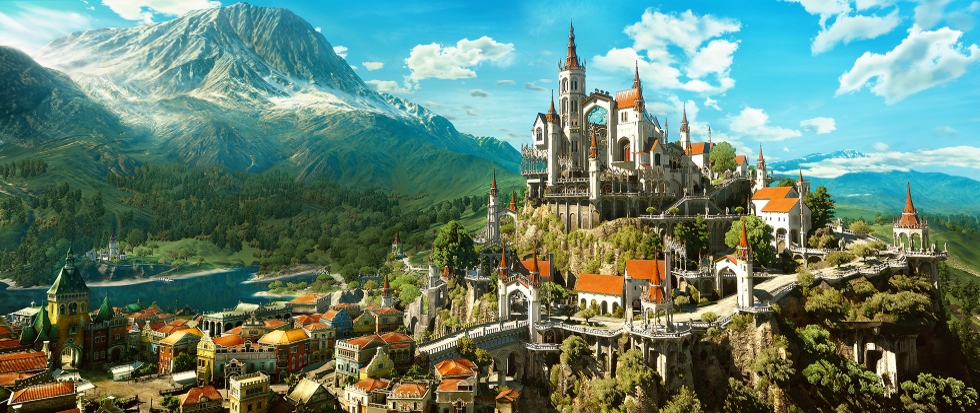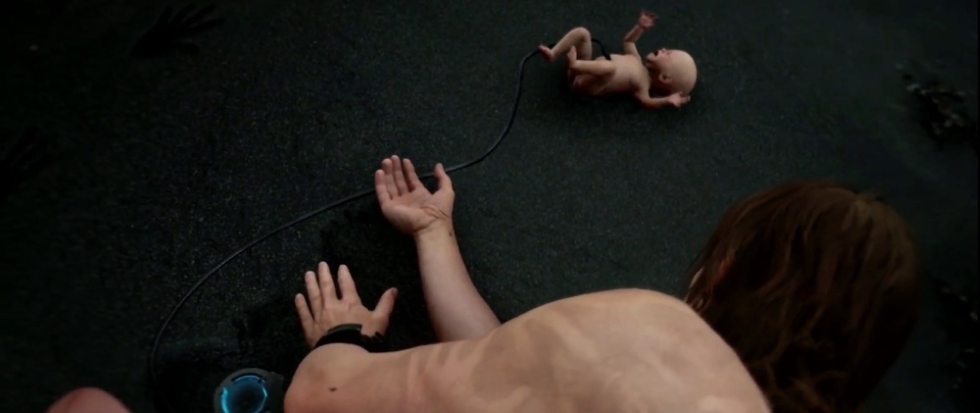
Archipelago America
In this age of hyper-connectivity, it’s almost strange that feelings of isolation still manage to happen. But isolation is nothing new in the grand scheme of things, at least when it comes to the United States. The country we currently live in alternates between being densely packed and sparsely populated. We have cities full of people on very little landmass, and wide open spaces with few people in them making up rural America. Though in reality it’s one big, contiguous, mostly landlocked country, the United States shares more in common with an archipelago, with its highway system representing the currents and throughways that connect us. And when it comes to how America is structured, video games have the country pegged.
Playing Final Fantasy XV’s open-world first half is a surreal experience if you’re familiar with the more rural parts of the US. While you’ll run into some people when visiting the many towns and rest stops along the way, most of the map is empty, with only roads, daemons, and debris populating the in between. You’ll still be visiting diners to get missions, but devoid of intelligent life outside of your party. Ordinarily this would make the world feel sterile and lifeless, and to a certain degree it is. The empty landscapes are pretty, but going from very lived-in environments to what is ultimately a hollow shell of a world is downright eerie.
If there’s one game that makes you really feel the vast emptiness like this, it’s The Legend of Zelda: Wind Waker, and indeed, its overworld is structured similarly. Set in a flooded Hyrule with only a scant few islands of inhabitants left, most of Wind Waker is spent sailing around the open ocean, exploring all the different squares on the map and traveling between the final bastions of civilization. While you’re on the open ocean, you can’t help but feel the distance between you and everyone else as the isolation of being alone at sea pressures you. It’s not unlike the feeling you get in Final Fantasy XV’s empty highways and tenuously connected pieces of civilization, revealing this very deliberate take on America to echo the structure of an archipelago much like Wind Waker’s world literally is.
The empty feeling of these games perfectly mirrors how America’s land is structured. Populous cities exist as all-encompassing things, but outside of them lay large swaths of land with nothing in them but the occasional rural town. Everything else is abandoned buildings, overgrown plots of land, and other evidence of being inhabited in a time long since past. The only parts of these spaces that pulse with human life are the highways, the throughways that people use to go from populated place to populated place. In many ways, we were always isolated even if it feels like we aren’t. It’s just that we were isolated by location, with communities forming that essentially isolates us from other communities.
That’s why you get echo chambers in the less diverse ones: isolation from other viewpoints. Cities give you a broader perspective because of the simple fact that there’s so many kinds of people in them to draw from, but they might not see what life is like outside of them. There’s a reason many coastal city dwellers refer to the rest of the country as “flyover states”. It’s this dynamic that’s partially why Final Fantasy XV main character Noctis is sent out of his home city of Insomnia before his wedding and becomes king: to get a perspective outside of his isolated viewpoint living in Insomnia. And that’s exactly what you do in Final Fantasy XV. In fact, you never actually see what Noctis’s perspective was while living in the big city, as the game serves as a sort of pilgrimage for him of the world outside of Insomnia, a perspective that’s necessary for a king to have.
As cliched as it is, Death Stranding may have the best answer when it comes to curing the innate isolation that we face in America. By far the most compelling aspect of the game is the ability to create roads, zip lines, and other features that help other delivery people cross the dangerous landscape and connect those that are isolated. Death Stranding beats you over the head about making connections with each other in times of isolation, but this mechanic where you’re collectively building ways to make connections easier rings truest. It’s up to us to connect with each other even outside our comfort zones. That’s why the internet is so amazing and terrifying: It forces us to reckon with just how isolated our viewpoints are, and to reach across the ocean that is the US to connect with people we never could have before.
But the best advice comes from Final Fantasy XV. Even though you’re often isolated in the ocean of the world’s highways, you have your three best friends by your side. When it seems like you’re alone, with a sense of isolation pressing down on you, you still have people who care about you who are isolated in ways both similar to and different than your own. Connecting may be up to you, and it may be hard, but don’t overlook the people right in front of you. In the hardest, most isolating of times, they’ll form the foundation of what you need to hold onto when things get dire as you traverse the archipelago that is America together.





